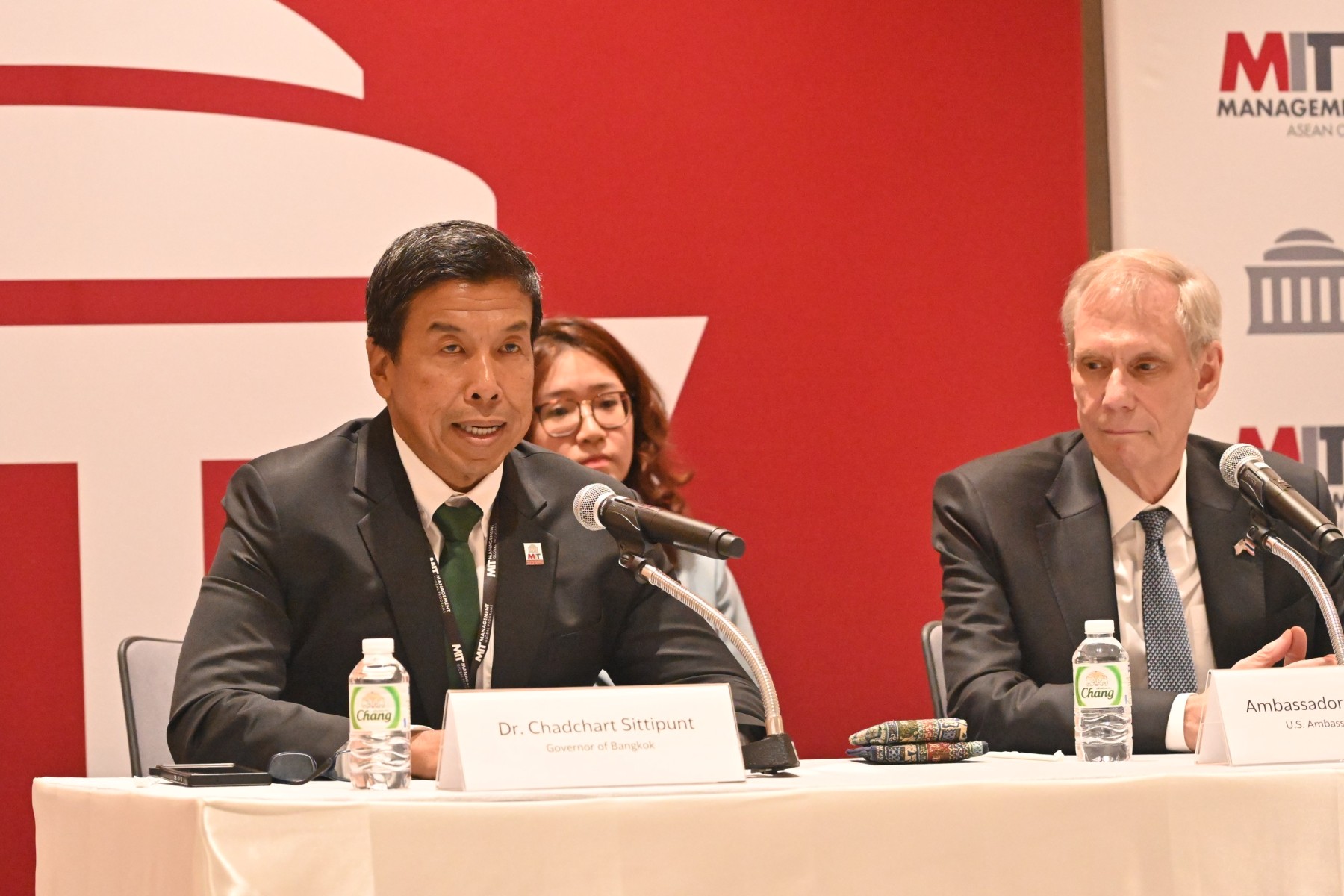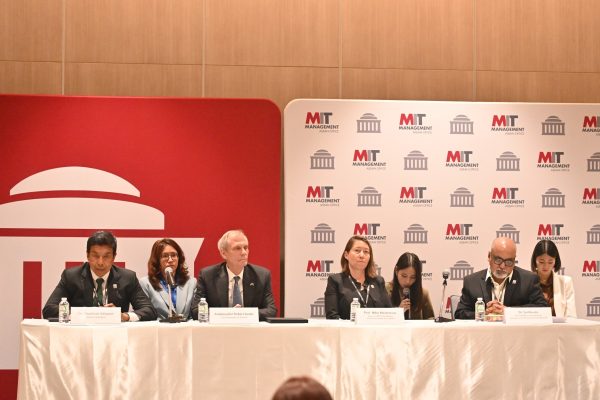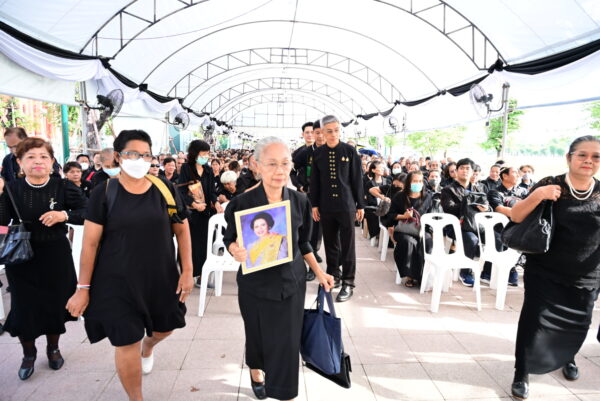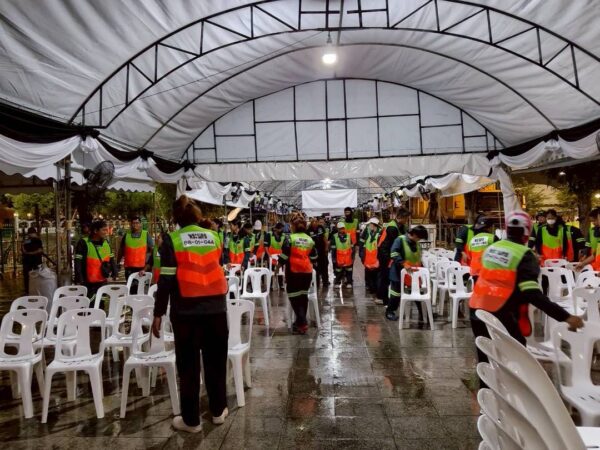(June 30, 2025) – Bangkok Governor Chadchart Sittipunt underscored the critical importance of “knowledge and cooperation” in effective disaster management today, as he joined a high-level conference organised by the US Embassy in Thailand, the Massachusetts Institute of Technology (MIT), and the American Chamber of Commerce in Thailand (AmCham).

Governor Chadchart, alongside H.E. Mr. Robert F. Godec, the US Ambassador to Thailand, and distinguished experts from MIT – namely Professor Miho Mazereeuw, Director of the MIT Climate Mission and Urban Risk Lab, and Dr. Sai Ravela, Principal Research Scientist from the Department of Earth, Atmospheric, and Planetary Sciences (EAPS) – held a press conference ahead of the “Disaster Management Conference: Technology, Innovation, and Research for Effective Disaster Response and Prevention.”
The event took place at the One Bangkok Forum, One Bangkok project in Pathumwan District.
The conference, jointly hosted by the US Embassy in Thailand, the MIT ASEAN Initiative, and AmCham, aimed to foster open discussions on disaster management policies.
It highlighted US expertise in disaster management research and practices, and provided a platform for US private companies offering disaster management services to engage with policymakers, academics, non-governmental organisations, and thought leaders from Thailand and other ASEAN nations.
Governor Chadchart addressed the escalating and complex nature of disasters, attributing it to various factors including global warming and urbanisation, which leads to increased population density and more intricate infrastructure.
He cited the COVID-19 pandemic as an example, noting its more severe impact in urban areas due to higher population density.
Furthermore, the Governor highlighted how increased reliance on modern conveniences exacerbates the difficulty of life during a disaster, explaining that even a few hours without electricity can have a severe impact.
The Governor outlined four key pillars for effective disaster response: prevention, problem-solving, mitigation, and recovery.
He emphasised that all these aspects require strong knowledge and multi-sectoral cooperation.
He lauded the collaboration with MIT, acknowledging their extensive knowledge, advanced technology, and global network of experts, which he believes will be crucial in enabling cities to better cope with, survive, and recover from disasters.
US Ambassador Robert F. Godec reaffirmed the long-standing and strong relationship between the United States and Thailand, spanning over 190 years.
He described the two nations as close allies, good friends, and partners collaborating across diverse areas including security, trade, investment, education, and public health.
Disaster management, he stated, is a key area of close cooperation. The Ambassador cited Bangkok’s recent earthquake response as an example of appropriate action, noting the Embassy’s close collaboration with various agencies.
While acknowledging the good handling of the situation, he stressed that there is always room for improvement in preparedness and response.
He expressed confidence that MIT’s research, knowledge, expertise, and advanced technologies would be shared at the conference, with the primary objective of fostering continued cooperation between the US, Thailand, Bangkok, and their respective peoples to prepare for future crises.
“A new crisis can always happen. This is the reality of the modern world, and we must be prepared to save lives, help people, and respond when unexpected events occur,” he stated, expressing pleasure at the conference and appreciation for the strong commitment to genuine cooperation, reinforcing the idea that “friendship is when friends help friends.”
Professor Miho Mazereeuw discussed the application of technology and design in reducing disaster risk.
She highlighted that building resilient and adaptable cities requires a holistic, integrated approach across various disciplines, particularly in community and environmental design, which are crucial for risk reduction.
However, she observed that digital infrastructure, real estate development approaches, public space design, and stakeholder engagement are often overlooked in disaster management, despite their vital role in long-term community security and shared benefits.
With limited resources, she advocated for the use of scenario modelling and predictive planning as essential tools for prioritising efforts and forging effective partnerships.
Furthermore, she suggested that an Action Research framework could support context-specific community design for disaster resilience through local communication and multi-sectoral collaboration.
Her presentation included case studies from the US, Japan, and projects by the MIT Urban Risk Lab and the Resilience Collective network in Thailand.
MIT’s approach, she explained, integrates Artificial Intelligence (AI), innovation, and close collaboration with local partners to deliver practical outcomes and tangible impact through knowledge co-creation, strengthening communities and improving overall well-being.
Projects range from strategic planning and design to real-time coordination and disaster assessment systems for floods and earthquakes.
Ultimately, the integration of technology and design, she concluded, builds disaster immunity, fostering both aesthetic appeal and economic sustainability for cities, communities, and their most vulnerable members during crises.
Dr. Sai Ravela highlighted that urban centres in Thailand and the ASEAN region are facing increasingly complex and severe climate threats, including cyclones, floods, saltwater intrusion, and ecosystem degradation.
These hazards, he noted, are often interconnected and cascade in complex ways, rendering traditional planning mechanisms ineffective.
His presentation proposed new approaches utilising digital technology, blending physical models, AI systems, and the human dimension to enable rapid and effective decision-making and action, even in highly uncertain conditions.
The conference agenda included insightful presentations and discussions. Governor Chadchart presented a case study of Bangkok’s disaster management efforts, while Professor Miho and Dr. Sai delivered their expert lectures. The event also featured a panel discussion with industry representatives from One Bangkok, Honeywell, SCG, McKinsey & Co., and Western Digital.
—————————




